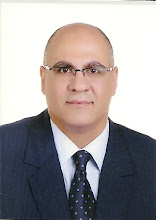US Exports to Arab World Likely to Soar in 2007
U.S. Exports to Arab World Likely to Soar in 2007
The National-U.S. Arab Chamber of Commerce (NUSACC) will release a report March 15 saying that U.S. merchandise exports to the Arab world are expected to increase sharply this year, "shattering" the record set in 2006."We are charting new territory in America's trade relations with the Arab world," said David Hamod, president and CEO of the group, which represents U.S. and Arab businesses. "The 2006 numbers are unprecedented, and the outlook for 2007 looks even brighter." The 16-page report, covering 21 Arab countries plus Palestine, says that U.S. sales to the Arab region totaled more than $ 35 billion last year -- a 28 percent increase over the previous year -- and are set to rise to roughly $ 45 billion in 2007.Hamod said that the report confirms that the Arab world remains one of the best export markets for U.S. firms. "If the early numbers are any indication," he said, "2007 promises to be a banner year for U.S. companies." Depreciating Dollar.The report suggests that the most important reason for the continuing rise in U.S. exports may be the depreciating U.S. dollar, which is making U.S. goods more competitive in the region. Moreover, according to the report, higher oil prices mean greater purchasing power for energy-producing economies, and the region's consumer market -- flush with disposable income -- is also helping to drive up U.S. export sales.Two trends also appear to be emerging, according to the report, which relies on data compiled for the NUSACC by the Institute for Research: Middle Eastern Policy (IRmep).First, countries that have concluded free trade agreements with the United States -- Jordan, Morocco, Bahrain, and Oman -- have seen their trade levels outpace those of non-FTA nations (a 32 percent increase from 2005 to 2006 vs. 24 percent for non-FTA countries).The NUSACC said that the so-called FTA Effect -- heightened confidence stemming from the perception that the FTA nations have upgraded their trade and investment standards -- has resulted in, among other things, more trade.Second, according to the NUSACC report, foreign direct investment in the Arab world appears to be flowing at unprecedented levels, with the number of greenfield FDI projects in the Arab Middle East jumping by 100 percent from 2002 to 2005. It said that the inflows in North Africa have been even more impressive: an increase of 154 percent over the same period.While exports are up, however, the report warns that there may be "storm clouds on the horizon," citing what it calls increasing evidence that regional and global political trends are beginning to take their toll on the U.S. relationship with the region.The report notes, for example, the war in Iraq, the Dubai Ports World incident, the war between Israel and Hezbollah in Lebanon, and a strong trend in the post-9/11 world for Arabs to "look east" to Asia for business partners and, increasingly, political support.
The National-U.S. Arab Chamber of Commerce (NUSACC) will release a report March 15 saying that U.S. merchandise exports to the Arab world are expected to increase sharply this year, "shattering" the record set in 2006."We are charting new territory in America's trade relations with the Arab world," said David Hamod, president and CEO of the group, which represents U.S. and Arab businesses. "The 2006 numbers are unprecedented, and the outlook for 2007 looks even brighter." The 16-page report, covering 21 Arab countries plus Palestine, says that U.S. sales to the Arab region totaled more than $ 35 billion last year -- a 28 percent increase over the previous year -- and are set to rise to roughly $ 45 billion in 2007.Hamod said that the report confirms that the Arab world remains one of the best export markets for U.S. firms. "If the early numbers are any indication," he said, "2007 promises to be a banner year for U.S. companies." Depreciating Dollar.The report suggests that the most important reason for the continuing rise in U.S. exports may be the depreciating U.S. dollar, which is making U.S. goods more competitive in the region. Moreover, according to the report, higher oil prices mean greater purchasing power for energy-producing economies, and the region's consumer market -- flush with disposable income -- is also helping to drive up U.S. export sales.Two trends also appear to be emerging, according to the report, which relies on data compiled for the NUSACC by the Institute for Research: Middle Eastern Policy (IRmep).First, countries that have concluded free trade agreements with the United States -- Jordan, Morocco, Bahrain, and Oman -- have seen their trade levels outpace those of non-FTA nations (a 32 percent increase from 2005 to 2006 vs. 24 percent for non-FTA countries).The NUSACC said that the so-called FTA Effect -- heightened confidence stemming from the perception that the FTA nations have upgraded their trade and investment standards -- has resulted in, among other things, more trade.Second, according to the NUSACC report, foreign direct investment in the Arab world appears to be flowing at unprecedented levels, with the number of greenfield FDI projects in the Arab Middle East jumping by 100 percent from 2002 to 2005. It said that the inflows in North Africa have been even more impressive: an increase of 154 percent over the same period.While exports are up, however, the report warns that there may be "storm clouds on the horizon," citing what it calls increasing evidence that regional and global political trends are beginning to take their toll on the U.S. relationship with the region.The report notes, for example, the war in Iraq, the Dubai Ports World incident, the war between Israel and Hezbollah in Lebanon, and a strong trend in the post-9/11 world for Arabs to "look east" to Asia for business partners and, increasingly, political support.

